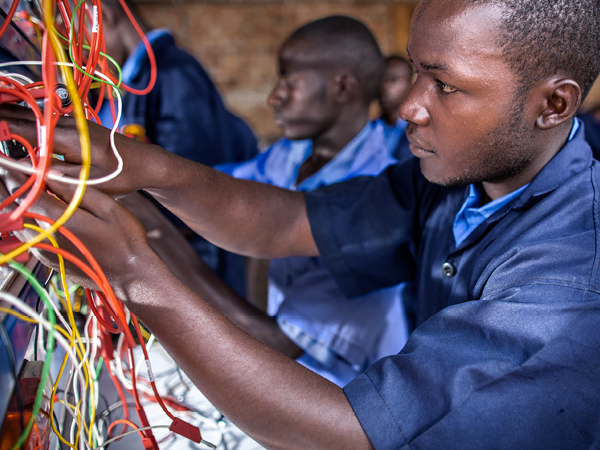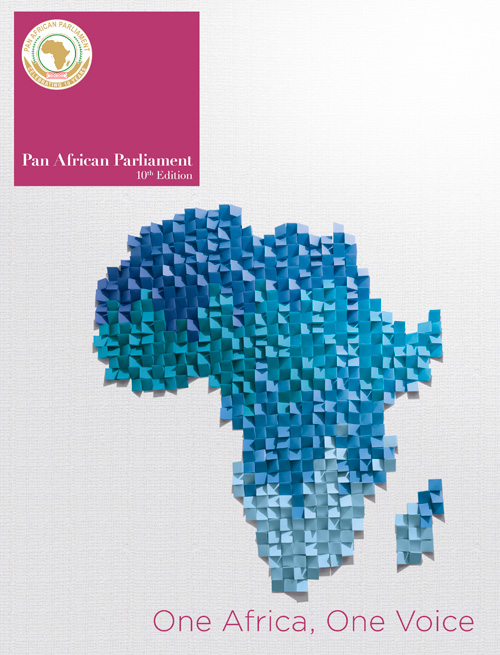
Eleven million youth are expected to enter Africa’s workforce every year for the next decade. It would appear that they are spoilt for choice in terms of a profession. They could become engineers who build railroads and motorways, scientists who prevent diseases, entrepreneurs who drive the continent’s business or tech innovators who stimulate ICT development. So why is it then, that youth unemployment is one of the biggest social and economic challenges facing Africa?
In a recent report on youth employment in sub-Saharan Africa, the World Bank sheds some light on the critical issues hampering the continent’s growth and development. ‘Youth employment is not a one-dimensional challenge,’ it states, detailing difficulties, which include the lack of education, skills, funds and infrastructure. But it’s mainly inadequate access to education that is the biggest prohibiter of young people going on to master highly skilled professions.
To address this issue, the World Bank says that Governments must pay close attention to the quality of basic education and training to improve young people’s productivity, while also removing current obstacles that stand in the way of them progressing.
The agricultural sector is vital to Africa’s development. It is one of the largest contributors to national GDPs and provides many opportunities for young people to earn a living. Participating in agricultural enterprises isn’t a new concept – in fact, the average young African worker who lives in a rural area is likely to already work on a family-owned farm.
In a bid to encourage more youth to become involved in the sector, several organisations have implemented programmes designed to increase the development of future farmers. Last year, the South African Government compiled a five-year plan to attract more young people to agriculture. With the country having the third-highest unemployment rate globally based on people between the ages of 15 and 24, its Agricultural Sector Education Training Authority aims to create 1 million jobs within the industry by 2030.
Another organisation that promotes youth employment in the agricultural sector is Nepad. Last year, the group received a US$4 million boost from the Food and Agriculture Organisation of the UN’s Africa Solidarity Trust Fund to create jobs for young people in agribusiness by helping countries draw up and implement policies that are aimed at increasing enterprise development and entrepreneurship skills in rural areas.
Nepad also launched the Youth Employment and Women in Agribusiness programmes to support the economic growth and empowerment of African women. This initiative intends to strengthen employment generation and sustainable livelihoods for women producers and agribusiness entrepreneurship.
Other sectors also offer employment opportunities. It is no secret that Africa has a severe lack of infrastructure shortages, making engineers crucial. Yet in South Africa alone, three-quarters of companies struggle to fill engineering roles. To close this gap, the Go for Gold partnership – a collaboration between the country’s education department and a range of engineering firms – offers students extra school classes and paid work experience.
In 2011, Samsung launched its engineering academy in South Africa, Kenya and Nigeria with the aim of developing 10 000 electronics engineers by the end of 2015. It provides vocational training for students from Grade 10 to 12, who are then offered an internship on completion.
According to the global NPO Youth Business Inter-national, the traditional job is becoming increasingly rare, which is why youth entrepreneurship has become an ideal way of entering the labour market. A joint study with the Global Entrepreneurship Monitor showed as many as 60% of 18- to 34-year-olds in Africa believe they have the knowledge and skills to start a business, compared to almost 30% in North America.
Inadequate access to education is the biggest prohibiter of young people mastering highly skilled professions
South Africa’s Department of Trade and Industry introduced a Youth Enterprise Development Strategy based on the premise that a dynamic youth entrepre-neurship culture will contribute to economic growth, poverty reduction and job creation. It aims to increase the number of youth entrepreneurs from the current estimated 6% to 20% – and their contribution to the country’s GDP from the current 5% to 15% by 2023.
According to a McKinsey report, the way in which young people are educated makes all the difference, providing good motivation for including entrepreneur-ship in the continent’s education system curricula. In line with this, the multinational consulting firm founded the African Leadership Academy in South Africa to impart the technical skills of an entrepreneur as well as the mindset of a self-employed money-maker.
The academy’s strategy centres around leadership, entrepreneurship and African studies. This prepares young leaders to confront Africa’s most pressing challenges through interdisciplinary, experiential educational opportunities. To date, the academy has educated more than 3 000 students from 48 African countries and chooses 100 young leaders to participate in the programme each year.
Also in South Africa, the Harambee Youth Employment Accelerator is another example of how corporations and non-profits can offer young people the experiences they need to be successful in the labour market.
Harambee works with its country’s corporate partners, including Hollard Insurance (one of the largest insurance companies in South Africa) and Nando’s (a fast food restaurant chain), to prepare and place first-time workers in entry-level jobs.
Recruited through a text message-based application system, participants engage in a three-month bridging programme that teaches them functional, technical and interpersonal skills. These young people walk away from the experience having learned how to interact in the workplace, manage conflict and deal with failure.
Aside from the advantages that come with owning a business, the continent’s future depends on science, technology, engineering and mathematics (STEM), according to Mariéme Jamme, CEO of London-based technology consultancy SpotOne Global Solutions. The Senegalese-born entrepreneur says millions of young people in Africa would be able to find jobs if the continent’s STEM policies were given priority. ‘Africa will need a new generation of accountants, auditors, creators, makers, designers, mathematics and science teachers, engineers and so on,’ she writes in the Huffington Post.
‘Currently in Africa, most STEM jobs are outsourced. In 2014, 87 construction teams arrived in Kenya from China to ensure the construction of the Standard Gauge railway in Kenya. Most Kenyans could not do the job.’
While some Governments have yet to fully introduce policies on STEM, there are several programmes that give youngsters a leg up in the innovative path. The STEM-Africa initiative, which was formed in 2009 by the African Studies Centre at the University of Michigan in the US, aims to nurture young scientists and advanced research networks with institutions in Africa.
In a speech at the initiative’s third conference last year, Makhtar Diop, World Bank Vice-President for the Africa region, said universities need to achieve the next level of homegrown excellence.
‘While partnerships between universities will help advance the quality and depth of scientific education, we must also ensure that students can apply what they learn once they graduate.’
Key to the solution is engaging the support of the private sector. Meanwhile, closer links between tertiary institutions and the private sector will help ensure that students graduate with skills that suit what employers actually require.
‘We have encouraged African ministers of higher education to boost private representation on their university boards, to get employers involved in vocational training programmes and to work directly with the private sector on curriculum design,’ said Diop. ‘We’re also encouraging private sector partners in Africa to offer apprenticeships, internships and certification programmes, to help bridge the gap between what’s being taught in universities and the realities of the job market.’
The British Council is also piloting micro-programmes throughout Africa via the Global Innovation Fund in an effort to increase STEM awareness. Meanwhile, 19 university-based African Centres of Excellence across seven countries received a combined grant of US$150 million from the World Bank last year to provide STEM education.
Every year, millions of Africa’s youngsters enter the workforce. For this reason – and more so now than ever – it is imperative that Governments, universities, firms and the youth harness their potential in a bid to foster economic development and shape the continent’s problem solvers.







